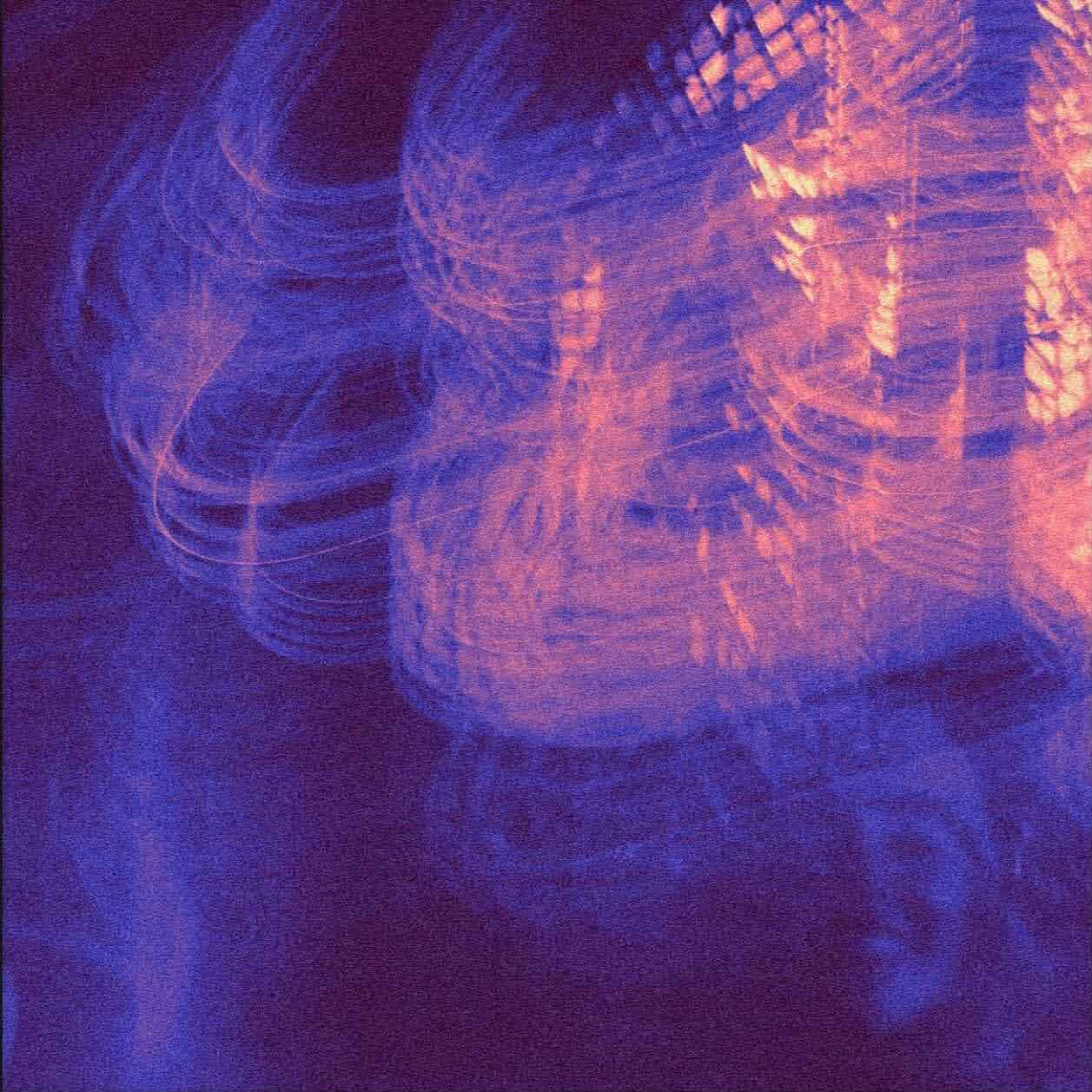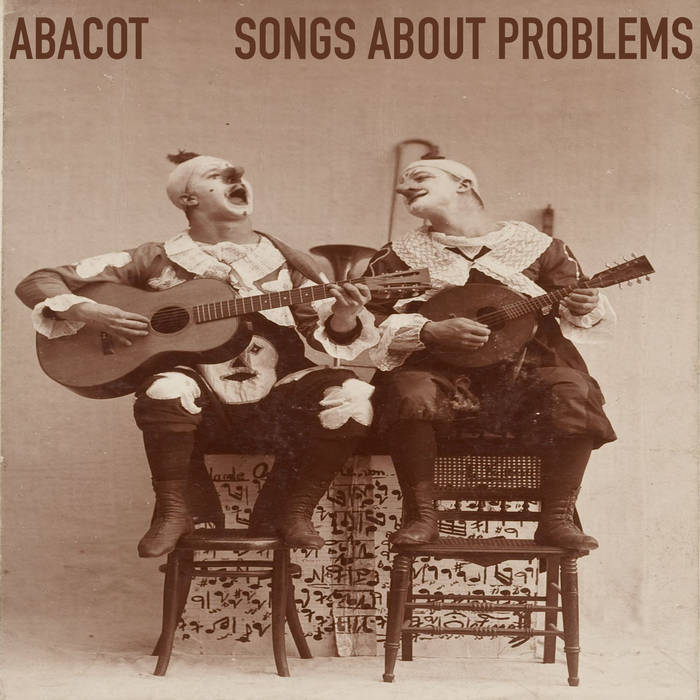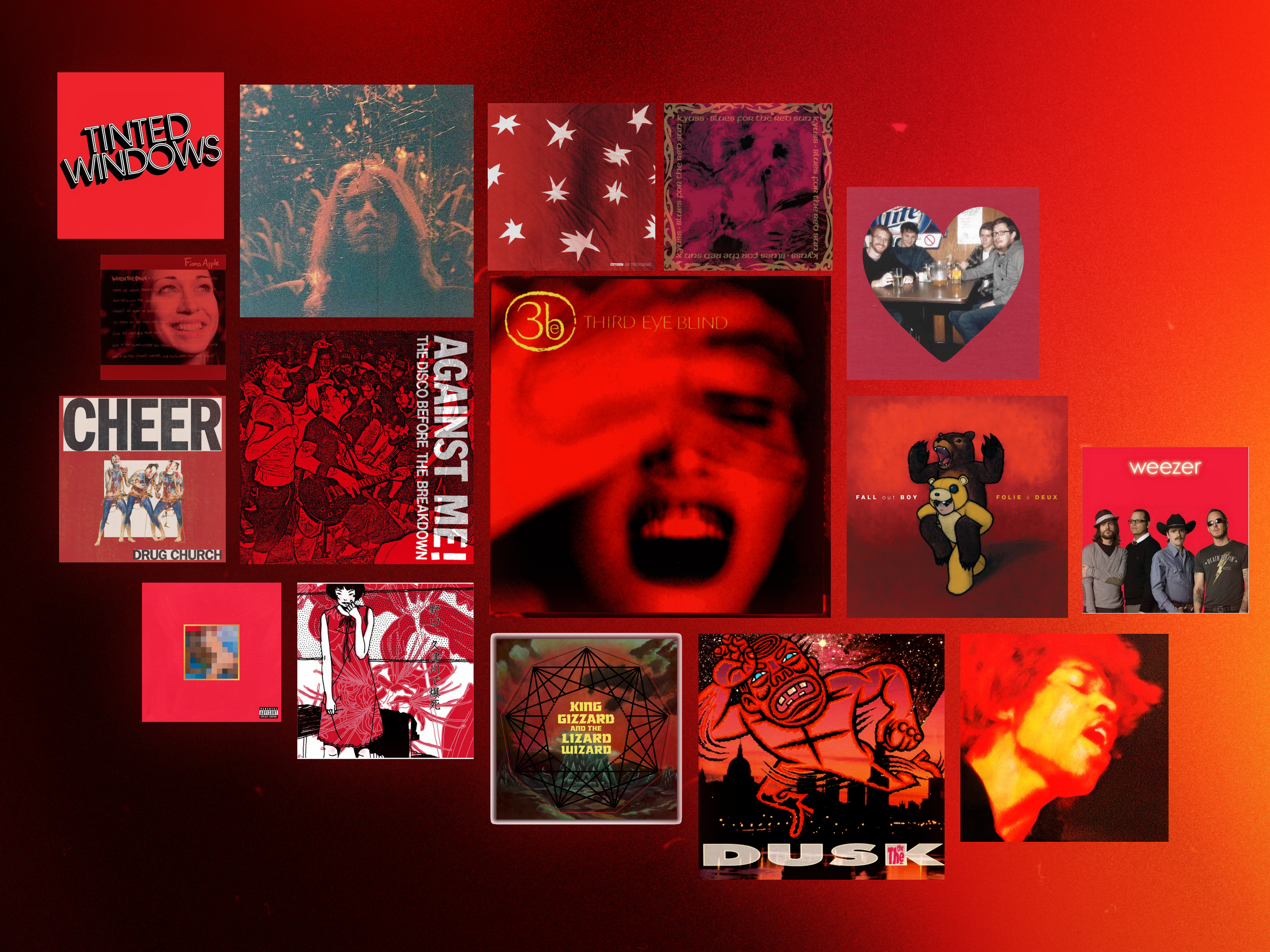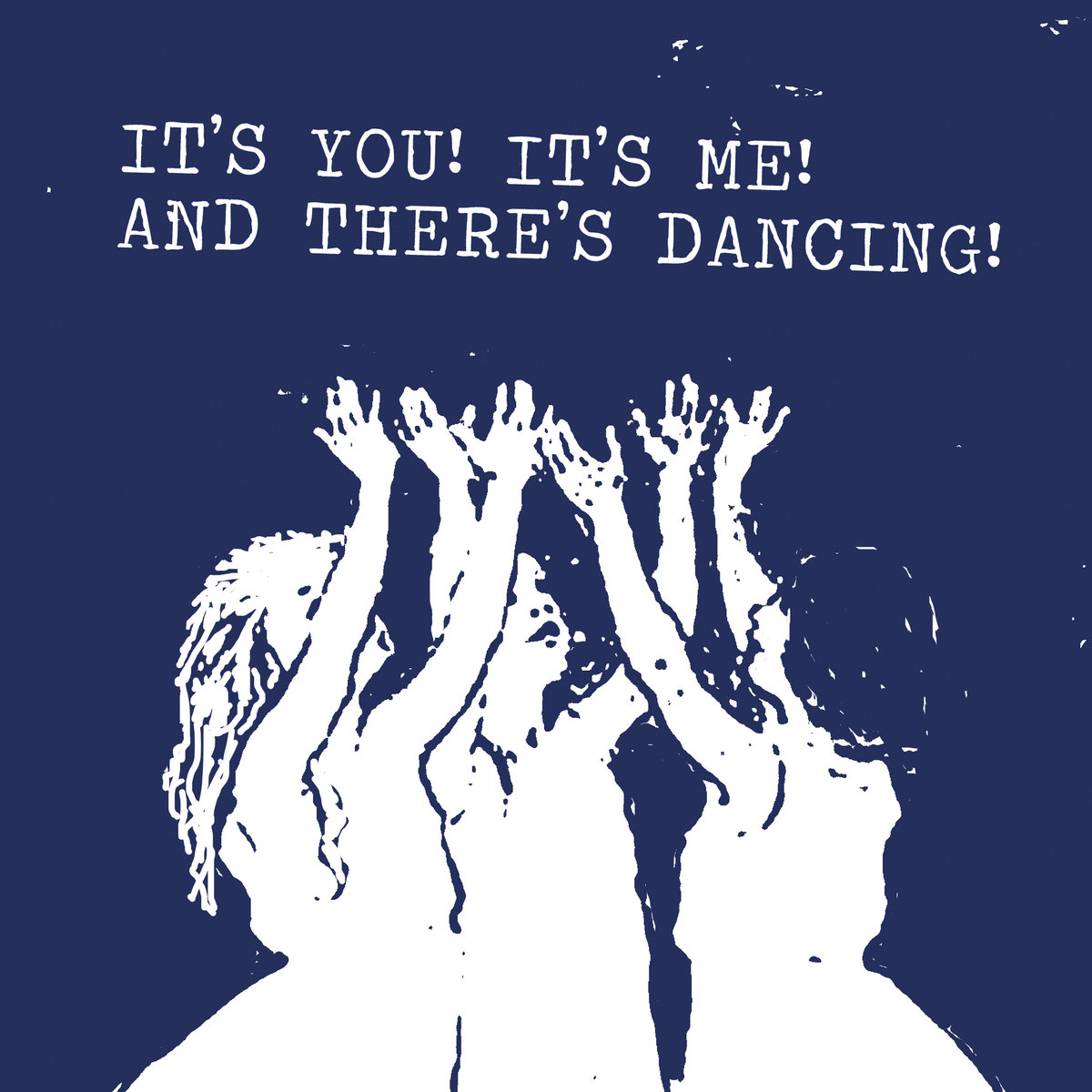Origami Angel – Feeling Not Found | Album Review
/Counter Intuitive Records
In case you haven't heard, it's pretty much impossible to remove the looming shadow of the Internet from the current state of music... Well, the current state of everything really, but this is an album review, so, music. In fact, the tangibility of the Internet has never felt more salient: public streaming numbers are turning music listening into a prizeless competition, artists with one viral song are getting Grammy nominations, and meme culture dyed the Internet lime green for a summer. It’s all making the way people interact with life and art weird.
Sure, the web is a tool to connect music to listeners and audiences to artists, but the relationship between music and the ‘Net is complex. It’s a place for buzzing discussion just as much as it is endless discourse. It’s a way to DM secret show addresses and document music scenes, but also a place where artists have to scrape by in an uneasy relationship with companies who have monopolized the technical side of things without considering the music side of things. Much like existing, The Online can be emotional and overwhelming and loud and cruel and intoxicating and real. Over the last few decades, we've watched it build and build until one day, it feels like everything will finally just be blue screens. Shrouded in this blue glow is where we find Origami Angel’s latest album, Feeling Not Found.
On their third album, buried between the 0s and 1s, Ryland Heagy and Pat Doherty dive deeper into familiar (certifiably Gami) territory while simultaneously breaking into exciting new realms. Through their discography, the band has always been driven by a handful of specific themes and tricks, and Feeling Not Found is no exception – but this is their brashest and boldest project yet. After years of experiments within the emo sound, their third full-length catapults Origami Angel into another echelon of expertise as they experiment with even more genres, deliveries, and emotion. They're combatting information overload with information overload.
In Feeling Not Found, there’s always another layer, another lyrical twist, another reference, or another unpredictable change around the corner as Origami Angel contends with the tensions of tangible reality through digital metaphor. With earlier song titles like “ROM Hack,” the story of how Origami Angel broke Minecraft and their rise to Emo Fame via online DIY circles, it’s impossible to separate Origami Angel from their existence within the Internet—and no one is more aware of this than the band themselves.
This concept-album-type-thing is not new to Origami Angel. Their first album, Somewhere City, imagined an escapist town filled with backyard roller coasters and endless refills of Dr. Pepper. To give you an idea of how much this band commits to the bit, physical copies of their debut came with a map of the city, and the album rolled out through a now-defunct augmented reality game. They continued the conceptual thread when they recorded their sophomore double album, GAMI GANG, in Heagy’s bedroom during lockdown. While that feels like a lifetime ago, Origami Angel hasn't stopped releasing music since. On a random Friday in 2022, the duo suddenly dropped re: turn, a gentle acoustic EP, and on the following Monday, they uploaded DEPART, a twin, body-slamming hardcore EP. On the back half of their latest, The Brightest Days, they dealt with the excruciating inner turmoil they feel towards the treatment of their hometown through the sunny confines of a breezy, Weezer-influenced mixtape. All of this makes the new album’s digital framing a natural and even necessary perspective for this particular project. It also gave the band an excuse to send Nintendo DS cartridges of the album to fans, which I bet they have wanted to do for a very long time.
Feeling Not Found is a pointed conglomeration of all the sounds and themes they experimented with over the past few years as they ascended to emo stardom. Release after release, album after EP after mixtape, Origami Angel have always stuck to a pronged emotional core with general ideas like longing, grappling with betrayal, pinpointing the authentic self amongst the weird, and breaking the fourth wall to talk directly to their audience. This consistency is one of the band’s most underhanded strengths, a common center that the duo can always ascend from, revisit, adjust, and reaffirm. Feeling Not Found comfortably continues these established concepts while newly remembering that the opposite of 'want' is 'take.'
The album begins with its thesis, “Lost Signal,” a soft synth track laced with grief. Heagy’s vocals digitize slowly as if suddenly engulfed by the computer screen he imagines. He ends the song solemnly with the suggestion that “maybe there’s a way out that nobody sees, In the static displays of our old CRTs, The sounds of the universe being created, And most people hate it.” This song sets the tone of Feeling Not Found and opens the window into the digital landscape: the hope for hope amongst numbness.
The album starts to quite literally rip from there, zipping through the circuits and directly into the electrifying introduction of “Dirty Mirror Selfie.” If “Lost Signal” sets the tone, “Dirty Mirror Selfie” sets the pace. In three minutes and thirty-seven seconds, the song touches on hair metal, power pop, emo, pop-punk, nu-metal, and something that reminds me of the build in a 00s singer-songwriter’s ballad before it's all blended into a hardcore breakdown that reminds you that their home, Washington D.C., invented this stuff. While this album fairly solidly pushes Origami Angel out of any stagnant “emo” descriptor and beyond the 5th wave ingénuity they contributed to, it’s not not-emo. For example, as the tracklist plays on, “Viral” trades in the melancholy realizations of “Where Blue Light Blooms” for dejected vulnerability, with lyrics pivoting briefly back to the more somber days of Quiet Hours amongst the squeal of a guitar and click of drumsticks.
After “Underneath My Skin” softly shuts the door on its way out, “Wretched Trajectory” kicks it back open. Between descriptions of a building sense of panic and a private need to see someone again, this song slides closest back to the Somewhere City and Gami Gang of it all. Specifically, it could even be a callback to similar emotions expressed in “The Title Track” or later in “Self Destruct.” But that’s not all, because it's also just as loud as those predecessors.
Pat Doherty’s drumming style is one of incomparable precision and intensity that glows throughout the entire album (and the band’s entire discography, for that matter). “Wretched Trajectory” is primarily driven through Doherty’s heartbeat of a kickdrum, a moment showcased best in the bridge as the rest of the music drops out and he powers all momentum. It’s impossible not to think of how these songs will translate into Origami Angel’s riotous live shows, where the circle pit never stops circling, and the crowd surfers never stop surfing.
The final gang vocals of “Wretched Trajectory” arc down into the anguished ballad “AP Revisionist History” before leading into “Living Proof,” which begins with a beachy pop-punk beat that bounces along, grating against the simmering ferocity of the lyrics. As Heagy singsongs a reminder that “I don’t think that that’s how you’re supposed to talk to people you say you love,” the song slowly grows more sinister. Formerly boppy guitar riffs start to slice between Heagy’s words, matching their acerbic strikes. Suddenly, without warning, the floor falls out from underneath the song, revealing a pulsing beatdown. After years of releases, it’s become abundantly clear that Heagy is not afraid to get mad as fuck — in fact, he screamed across an EP about it in 2022. For the DEPART-heads out there, “Living Proof” picks up where “JUDGE” left off, and it’s even meaner.
So, how have these past few years of emo celebrity and indie darling-dom treated Origami Angel? Thanks for asking. Past lead single “Fruit Wine” sits “Sixth Cents (Get It?),” one of the record's final singles. This song digs very openly at the uglier parts of being a working musician: the pay, the falsified enthusiasm, and the empty promises. A restless rhythm complements the song’s sardonic condemnation of The Music Industry, as the band seems to mimic the demands they’re receiving – specifically, the notion that artists have to constantly change themselves to be noticed by any kind of algorithm-based popularity machine. It’s funny, it’s rude, it races at a 2:15 pm-Warped-tour-mainstage-metalcore speed, and it resonates.
This song is immediately followed by the breathless “secondgradefoofight” and the two share an incredibly fun music video. Origami Angel has always worn their references on their sleeves, from proudly championing sidelined bands like Chunk! No, Captain Chunk! to instantly name-dropping DC’s The Obsessives when asked about their duo structure. As a band that does the most (haha) at every juncture possible, their references are endless – they're very clearly geeks with a deep appreciation for lots of music, and that makes it pretty easy to be a fan of theirs. However, the joint music video is the most they’ve ever referenced other artists as they step into their shoes and recreate the videos that made these stars famous, from Taking Back Sunday’s VH1 Top 20 Video Countdown-ready “Cute Without the 'E' (Cut From the Team)” to Phoebe Bridgers’ highly-parodied “Kyoto” to that one frame of Modern Baseball’s “Your Graduation” that probably has a fan base of its own. But despite the perhaps therapeutic airing of grievances in “Sixth Cents (Get It?)” and the threats of the anxiety-riddled “secondgradefoofight,” there is still an emotional toll to it all. The stretch of anti-industry, semi-self-motivating tracks ends on “HM07 Waterfall,” a Pokémon-referencing song that cracks the screen Gami carefully placed between the digital and the real as it starts to apologize for the personal impact of these conflicts.
In Ian Cohen’s Pitchfork review of the comparatively hopeful Somewhere City, he concludes with the suggestion that “Origami Angel would be wise to explore the darkness on the edge of town.” It seems that in the tumultuous five years since that release, the band has found themselves in that exact fading light. On that album, Origami Angel ended with a repeated refrain, “The city never lets me down,” a sweet conclusion to a very sweet project. A couple of years later, the band ended their second album with the repeated confirmation, “This is goodbye.” Now, on the title track for Feeling Not Found, the band marries the two sentiments into the bittersweet affirmation, “No matter how much the world wants me to change.” It’s a conclusion that they could have only gotten to now. Suddenly, the anxiety of the blue light fades away.
After all of this, can you even look at the world around you without seeing the junk and firewalls? The digitalscape is woven into the reality of Origami Angel, not only in the music listening but in their lyrics, musical references, song titles, and conceptual outlook. In their own words, “When the cycle is over, and all the circuits are broken, you won’t be fighting resistance in spite of existence.” So log off, close this review, listen to the album, and remove yourself from the Internet. Just know that when you look away, there will be a split second where the brightness of this exact screen will still be burned over your vision, momentarily blending your digital life into your physical reality.
Caro Alt’s (she/her) favorite thing in the world is probably collecting CDs. Caro is from New Orleans, Louisiana and spends her time not sorting her CD collection even though she really, really needs to.






